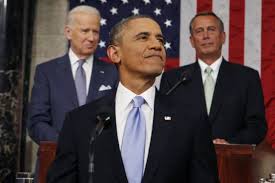Last week, Evangelical scholar and Christian ethicist David Gushee visited The University of Virginia to give two lectures. I attended the first – “Sacredness of Life,” which received its title from his latest book. If I recall, the poster advertising his visit said something along these lines. “Christian Ethicist David P. Gushee argues that culture wars and political polarization have misrepresented, obscured, and endangered one of the most precious legacies of Biblical faith – the sacredness of human life.”
Hmm, potentially messy.
But when it came time to talk, Gushee tossed his formal notes and spoke candidly about his book and the ‘sacredness of life’ ethic that runs through it. He talked about the ethic’s foundation in biblical sources, its historical trajectory, and how it applies to some contemporary issues (not always an easy task).
I think Gushee deserves tremendous credit for doing what he does. His ethic is consistent, accessible, and true to the Christian tradition. In the best way, Gushee’s “Sacredness of Life” ethic is non-partisan and deeply profound in that it appeals to something higher and longer lasting – the Judeo-Christian tradition. It is accessible and consistent, historically reinforced and contemporarily relevant.
In all seriousness, I think my head was nodding up and down for the duration of his talk. “You can’t be ‘for the sanctity of life’ and also be for pre-emptive war, the death penalty, and torture. You can’t be ‘for the sanctity of life’ and also be for cutting social services and funding for education,” he commanded.
Given my interest in religion and politics, there was one talking point that struck me as particularly relevant. In response to a question about human dignity, Gushee spoke a little bit about how Christians talk about the sacredness of life in the secular/political sphere. Somewhere in the transition from a religious space to a secular one, the term ‘sacredness of life’ gets translated to ‘human dignity.’ This, Gushee said, is okay. Without a doubt, Christians can and should participate in public discourse. But “dignity language, already indicates the secularization of sacredness of life.” So while we can and should use it, it is important to remember the theology behind it. Furthermore, we must not be afraid to say why we believe each human has dignity.
And so, when Obama addressed America in Tuesday night’s State of the Union saying, “We know our economy is stronger when our wives, mothers, and daughters can live their lives free from discrimination in the workplace, and free from the fear of domestic violence” and then “Tonight, let’s declare that in the wealthiest nation on Earth, no one who works full-time should have to live in poverty,” I think it’s important to think about and remember that Christian theology lies behind those statements. Obama doesn’t explicitly say, of course, that feminist Christian texts influence how we treat women or that liberation theology tells us to lift up the poor… but it’s there behind that secular language. And it’s all part of the sacredness of life.
As always, e-mail me at [email protected] or follow me on Twitter at @MissAnalytical.











